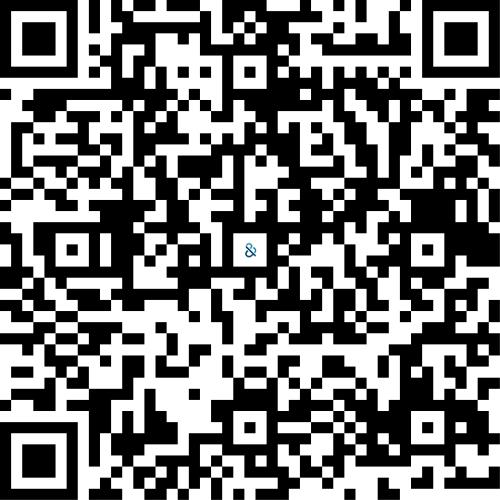Newsletter
ServicesBeyond the Basics: HRMS and the Art of Empowerment
Nov. 01, 2023

Ever wondered what it takes to run an efficient workplace in today's digital age? Given that no organization can entirely be physically operational or solely remote. Human Resource Management has come a long way. Over the years, organizations have recognized the pivotal role that HR plays, not just as a function, but as a strategic partner in business growth. This realization paved the way for the gradual shift towards a Human Resource Management System (HRMS), transforming traditional HR practices into streamlined digital processes. These stats will further add to your perspective:
- According to a report, the global HRMS market is expected to grow from USD 10.7 billion in 2023 to USD 15.01 billion by 2028, at a CAGR of 7%.
- Moreover, the Indian HRMS market is anticipated to expand by a substantial USD 38.36 billion by the year 2030.
- The adoption of HRMS is growing among businesses of all sizes. According to a 2022 survey 83% of businesses are using HRMS solutions.
- According to studies, organizations using HRMS can reduce administrative HR expenditures by up to 30% while also increasing employee productivity by 40%.
These convincing numbers surely pave the way forward for the smooth functioning of HR operations for both businesses and employees and tell all the reasons why HRMS is increasingly being adopted by organizations.
The Human Resource Management System (Glueple) is a sophisticated software solution that has modernized and optimized HR operations. It serves as the digital hub of HR processes, facilitating the centralized management of employee data and automating essential functions, such as payroll, recruitment, and performance evaluation. Beyond these features, HRMS ensures regulatory compliance, offers seamless integration with other organizational systems, and provides convenient mobile access. In essence, HRMS cultivates an efficient and integrated ecosystem, streamlining HR procedures, enhancing data precision, and empowering HR professionals and employees to dedicate their efforts to strategic HR management.
Growing Adoption of HRMS
Unlike conventional HR systems, HRMS comprehensively manages the entire employee lifecycle, from recruitment to retirement, ensuring a cohesive and integrated approach to HR management. This transformation is attributed to several reasons, they are:
- Shift to Digital Platforms: With the advent of each new day, the corporate landscape quietly witnesses a transformative paradigm shift. Traditional offices, once confined to brick-and-mortar structures, have evolved into dynamic digital hubs where work unfolds within the virtual sphere. HRMS serves as the instrumental linchpin seamlessly harmonizing this digital metamorphosis into the daily operational fabric of organizations.
- Remote Work and Flexibility: The notion of fixed office desks has become antiquated in the contemporary workforce. Modern employees yearn for flexibility in their work arrangements. HRMS stands as the catalyst for this profound transformation, empowering businesses to embrace remote work options and provide the flexible work environments that today's workforce craves. A well-known provider of IT services used HRMS to oversee its sizable staff when they switched to remote work during the pandemic.
- Data-Driven Decision Making: In the era of data abundance, HRMS empowers businesses to make informed, data-driven decisions. HR professionals gain access to real-time data and analytics, offering profound insights into employee performance, engagement, and well-being. This invaluable data reservoir becomes the cornerstone for strategic decision-making.
- Regulatory Compliance: In an environment where adherence to regulatory standards is paramount, HRMS functions as the guardian of organizational compliance. It ensures that companies remain unwaveringly compliant with HR-related regulations and legal mandates. Effective management of compliance-related documentation significantly mitigates the risk of costly legal entanglements.
- Cost Efficiency: In a world where time and resources reign as the most precious commodities, HRMS assumes the role of a prudent financial steward. It acts as a tool for cost containment, resource optimization, and process simplification, ultimately resulting in heightened cost efficiency for organizations. A prominent IT consulting company, reported significant cost savings post the integration of an HRMS solution, attributing it to reduced paperwork and administrative overhead.
- Integration with Other Systems: HRMS operates as the universal communicator within the corporate sphere. Its seamless integration with various other systems serves as the lynchpin, bridging gaps and guaranteeing the seamless flow of data across all organizational domains, ensuring synergy and cohesion in operations.
Empowering Employees with HRMS
HRMS isn't just for HR professionals; it's a tool for the employees' success. Here's how Glueple benefits your workforce:
- Transparency: HRMS serves as a transparent portal into the inner workings of the organization. It furnishes employees with lucid insights into their benefits, performance assessments, and company policies, fostering a culture of trust and equipping employees with comprehensive awareness of their professional journey.
- Performance Enhancement: Traditional periodical performance evaluations have given way to a new era of continual feedback and assessment under HRMS. This transformation is a catalyst for performance enhancement, allowing employees to actively monitor their progress, set growth objectives, and achieve their full potential, thereby driving both individual and organizational success.
- Work-Life Balance: HRMS actively supports work-life balance. Through features like remote work arrangements and leave management, it empowers employees to harmonize their professional and personal lives. The result is a more contented and engaged workforce, which, in turn, amplifies productivity and job satisfaction.
- Career Development: HRMS serves as a navigational tool for career development. It opens avenues to training and development opportunities, enabling employees to chart their professional journey effectively. With access to learning resources and pathways for career advancement, employees can seize control of their personal and professional growth.
- Empowerment: Above all, HRMS is the ultimate empowerment tool. It equips employees with the resources and access they need to steer their path to success, promoting a more engaged and satisfied workforce. This empowerment cultivates a workforce that is not merely motivated but genuinely fulfilled in their professional pursuits.
As the workplace landscape continues its dynamic evolution, Human Resource Management has undergone a substantial transformation, emerging as a pivotal cornerstone for organizational advancement. The pervasive adoption of Human Resource Management Systems (HRMS) underscores its transformative impact.
HRMS extends its sphere of influence beyond HR professionals, affording employees transparency, sustained performance enhancement, the harmonization of work-life dynamics, opportunities for career progression, and the empowerment to shape their professional journeys. It stands as an indispensable catalyst for organizational triumph, molding an empowered, agile workforce equipped to confront the challenges and opportunities inherent to the digital era. The expedition into the uncharted realms of HRMS represents a journey towards a novel paradigm in workforce management.
Source: QDegrees,
Forbes, Media
